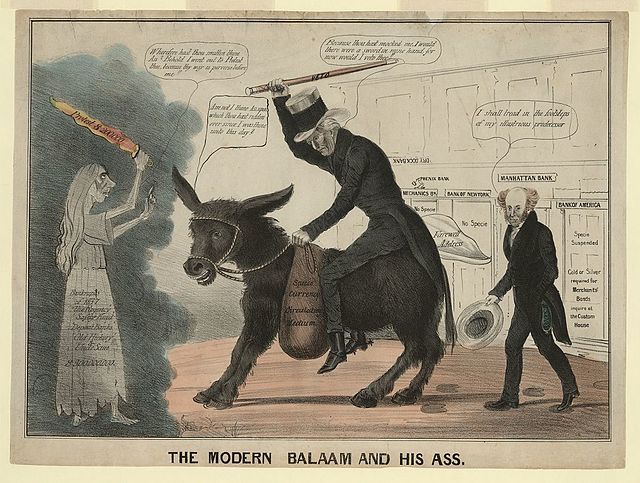Jacksonian democracy was a 19th-century political philosophy in the United States that expanded suffrage to most white men over the age of 21 and restructured a number of federal institutions. Originating with the seventh U.S. president, Andrew Jackson and his supporters, it became the nation's dominant political worldview for a generation. The term itself was in active use by the 1830s.
Andrew Jackson
1837 cartoon playing on "Jackson" and "jackass", showing the Democratic Party as a donkey, which has remained its popular symbol into the 21st century
A Democratic cartoon from 1833 shows Jackson destroying the Bank with his "Order for the Removal", to the annoyance of Bank President Nicholas Biddle, shown as the Devil himself. Numerous politicians and editors who were given favorable loans from the Bank run for cover as the financial temple crashes down. A famous fictional character, Major Jack Downing (right), cheers: "Hurrah! Gineral!"
Suffrage, political franchise, or simply franchise is the right to vote in public, political elections and referendums. In some languages, and occasionally in English, the right to vote is called active suffrage, as distinct from passive suffrage, which is the right to stand for election. The combination of active and passive suffrage is sometimes called full suffrage.
People queuing and showing their identity document for voting in the 2014 Indian general election
German election poster from 1919: Equal rights – equal duties!
A British postcard against women's suffrage postcard from c. 1908. It shows unflattering caricatures of suffragettes in front of parliament and the caption: "This is the house that man built" with a poem. From the People's History Museum, Manchester.
Women's Suffrage Headquarters on Euclid Avenue in Cleveland, Ohio, in 1912







